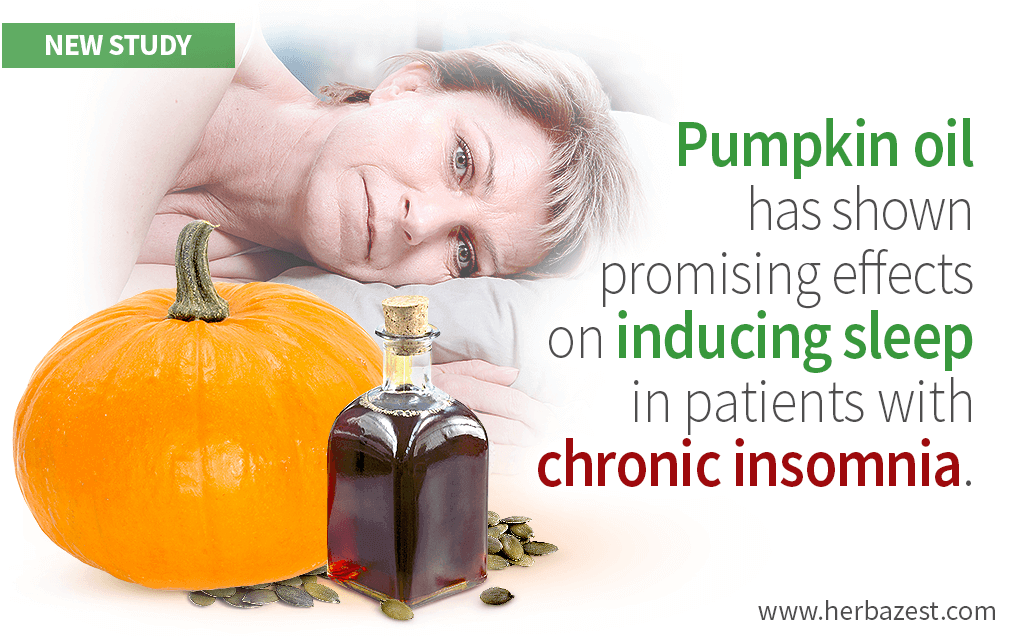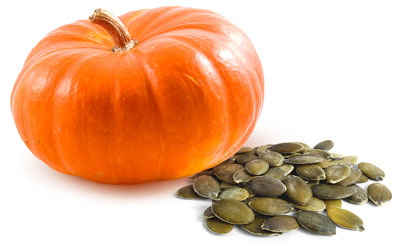Estimated to affect up to 15% of adults, chronic insomnia is a long-term inability to fall or stay asleep that is most common in the older population, particularly women.1 Persistently poor sleep patterns and quality can inhibit one's daily functioning, social relationships, and overall outlook on life. Insomnia is most commonly treated with sleep medications (hypnotics), often in combination with behavioral therapy.
Pumpkin is a popular member of the Cucurbitaceae family whose antioxidant and anti-inflammatory effects have been used in treating skin conditions, lowering cholesterol, and reducing prostate problems.2 It is also a valuable herb in Persian Traditional Medicine, one of the oldest medical systems in the world.
This study aimed to evaluate the safety and effectiveness of pumpkin oil on improving sleep in patients with chronic insomnia.
The Study
A randomized double-blind clinical trial was conducted at a sleep clinic in Baharloo Hospital of Tehran University of Medical Sciences in Tehran, Iran.
It involved 74 patients aged 22 to 64 years old diagnosed with chronic insomnia. They were divided into two groups: the first group of 35 patients received two drops of pumpkin oil intranasally at night one hour before bedtime, and the control group of 39 patients was given a placebo containing liquid paraffin. The intervention lasted for 14 days.
Before and after the study, Insomnia Severity Index (ISI) and Pittsburgh Sleep Quality Index (PSQI) questionnaires were used to measure sleep patterns and sleep quality, respectively. The higher the scores of ISI and PSQI, the more severe the patient's insomnia is.
The Results
Researchers observed a significant reduction in ISI and PSQI scores in the pumpkin oil group in comparison to the control group.
These substantial differences among the two groups were visible in all seven questions on the ISI questionnaire and in six out of seven questions on the PSQI questionnaire, except for one concerning the use of sleep medications.
Moreover, no side effects were reported in the pumpkin oil group.
What Does this Mean?
The results of this study revealed the beneficial effects of pumpkin on inducing sleep, thus shedding light on potential applications of pumpkin oil for insomnia treatment.
Taking advantage of natural herbal properties to regulate sleep patterns and promote sleep quality can lead to the introduction of safer and effective alternative treatments, which might allow insomnia patients to find relief without reaching for risky pharmaceutical options.
Further studies are recommended to explore the active compounds behind sleep-inducing effects of pumpkin.
Other sedative herbs helpful for tackling insomnia include valerian, chamomile, and passion flower.
Sources
- Journal of Pharmacy & Pharmacognosy Research, Efficacy of pumpkin oil (a Persian medicine product) in the treatment of chronic insomnia: A randomized double-blind clinical trial, 2019
Footnotes:
- National Sleep Foundation. (n.d.). National Sleep Foundation. Retrieved December 4, 2019 from https://www.sleepfoundation.org/articles/insomnia-and-sleep
- University of Florida. (n.d.). Health Benefits of Pumpkin Seed and Nutrition Profile of 35 Pumpkin Accessions. Retrieved December 4, 2019 from https://edis.ifas.ufl.edu/hs1312





